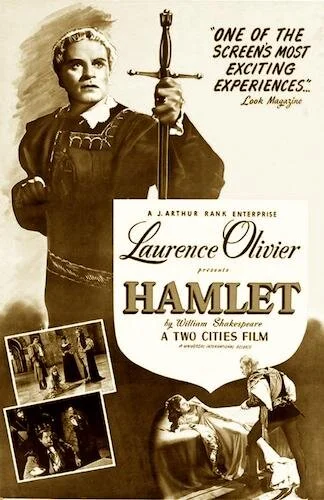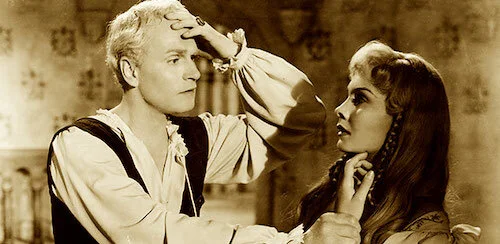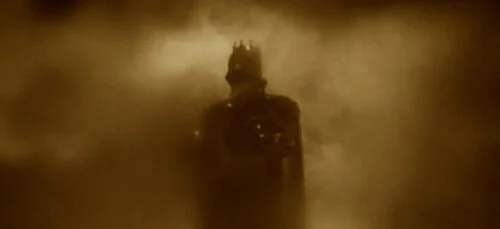Hamlet
This review is a part of the Best Picture Project: a review of every single Academy Award winner for the Best Picture category. Hamlet is the twenty first Best Picture winner at the 1948 Academy Awards.
The only Shakespeare adaptation to win Best Picture (which is kind of a shock), Laurence Olivier’s passion project version of Hamlet is, for me, one of the definitive cinematic renditions of a work by the iconic playwright. Hamlet is somewhat strange. Olivier clearly tried to channel his idol as best as he could (this was not the only adaptation Olivier pulled off), and yet Hamlet was as chastised as it was acclaimed. Olivier shaved off too much essential content. He focused too much on the psychology of the lead character. Whatever complaints there were, Hamlet has clearly surpassed them all with time.
If anything, the “issues” are what I love about this film. Watching a Shakespeare play in person is a very different experience than being in a theatre. Granted, cinematic audiences were starting to get used to the idea of incredibly long works, but having a more-direct version of the epic felt like it suited Olivier’s vision just a bit better. With the technological capabilities, having the film focus on Hamlet’s spiral into madness worked. Having the budget go into production and costuming costs, you’re already sold on the era being captured. While Olivier may not have made as expansive of a world as he could have, Hamlet just fits better in the canon of ‘40s cinema. It self identifies as a character study, as if Hamlet was a noir detective or a Hitchcock subject losing their grip on reality. It was aware of the then-contemporary audience awaiting it.
Much of Olivier’s Hamlet is concerned with its audience being unsure of how sane the title character actually is.
As you can probably guess, this was Olivier’s show in more ways than one. The legendary actor was the first to direct himself into winning a Best Actor win, and it’s very easy to see why. As the brains behind the project, Olivier obviously knew exactly what angle he wished to approach, and he brought out the exact performance he wanted to see from someone playing a role as big as Hamlet. Olivier has the insane ability to be as theatrically commanding as he is cinematically minimalist. His quick glances are subtle, and yet they’re in-your-face. You know he’s doubting himself, wondering if he is sick or the only one thinking right in the whole room. It’s not a talent you can train yourself to have. You just are able to do it.
Any part that was loud for the ‘40s remains as conformally pleasant today. I’m sure the ghost of King Hamlet was a huge accomplishment when Hamlet was first released. In 2019, the effect still remains chilling, although it’s far from the most difficult trickery ever committed to film. The point is, the attempt is still eerie to look at, and that’s what matters the most. A lot of the film relies on lighting magic to turn a dim castle into a mental prison, where the walls close in on Hamlet. There is so much auteur-based artistry in this film that you don’t usually see in a straight-up Shakespearean adaptation (so this excludes films like Romeo + Juliet and O).
The ghost of King Hamlet remains a captivating moment of the film.
Hamlet is the end result of a thespian-turned-filmmaker that was clearly certain of his capabilities. Nothing here is unsure. Laurence Olivier knows the source material well enough to hack away at it, not go too overboard in any way, and take on multiple responsibilities himself. Never does Hamlet feel at the mercy of William Shakespeare, or as if any sort of embellishments will sully his name; even many of the better Shakespeare films fall victim to these worries. It’s as dark as the original play is meant to be, and its essence is pulled off with the wonders of cinematic technology. If any Shakespeare film was to win Best Picture, Hamlet of 1948 is one of the better cases to pull it off.
Andreas Babiolakis has a Masters degree in Film and Photography Preservation and Collections management from Ryerson University, as well as a Bachelors degree in Cinema Studies from York University. His favourite times of year are the Criterion Collection flash sales and the annual Toronto International Film Festival.







